Intergenerational efforts to advance women’s emancipation
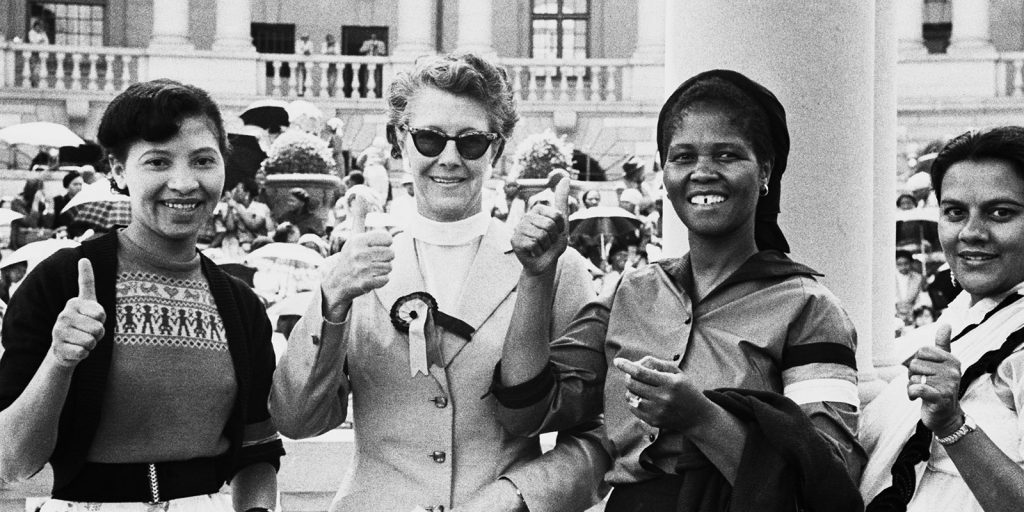
In 1956, my generation of women organised and mobilised 20 000 women across South Africa to march on the Union Buildings in Pretoria. Our protest action was against the oppressive system of apartheid. Today, as we commemorate the importance of the 1956 Women’s March in South Africa’s history, I want to assert that the struggles we faced then are not dissimilar to what today’s generation of women is being called upon to respond to.
Collective action to prevent conflicts during the COVID-19 pandemic
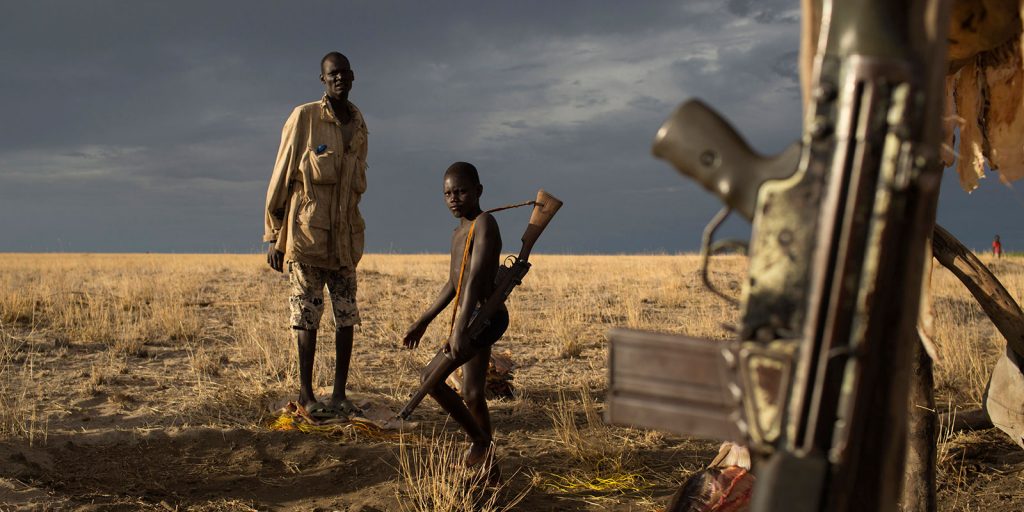
The call for a global ceasefire by United Nations (UN) Secretary General António Guterres came at an appropriate time, when the world needed to stop fighting and focus on the danger of the COVID-19 pandemic looming over us. However, more collective and inclusive action is required to make this a reality.
Africa’s prisoner release programmes: towards preventing the spread of coronavirus COVID-19
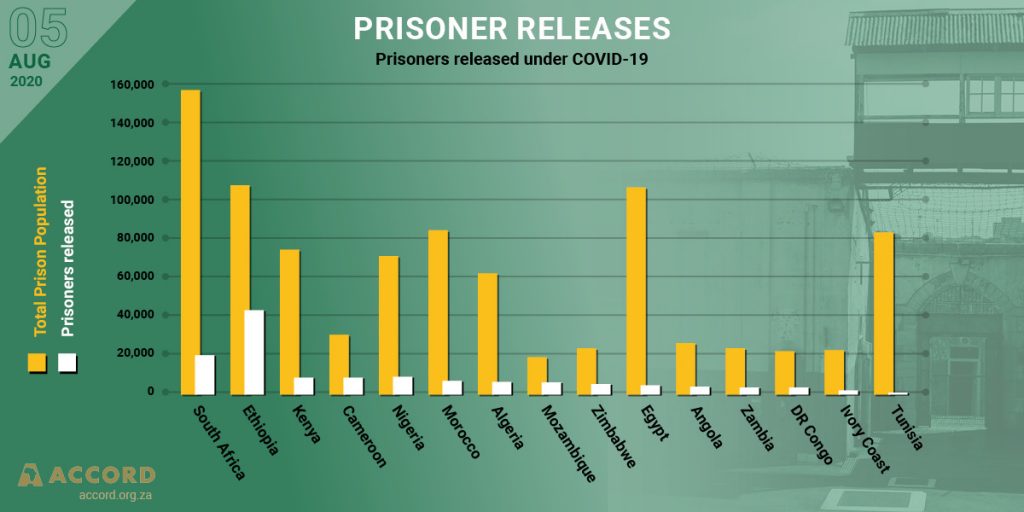
The era of coronavirus (COVID-19) is unprecedented and offers an opportunity to manage prison populations on the continent in a different but innovative manner. It is imperative that governments consider the need to decongest prisons through a number of measures to ensure the human rights of prisoners and to further limit the spread of COVID-19 to the outside population.
Africa’s COVID-19 diplomacy reflects its commitment to multilateralism and collective action
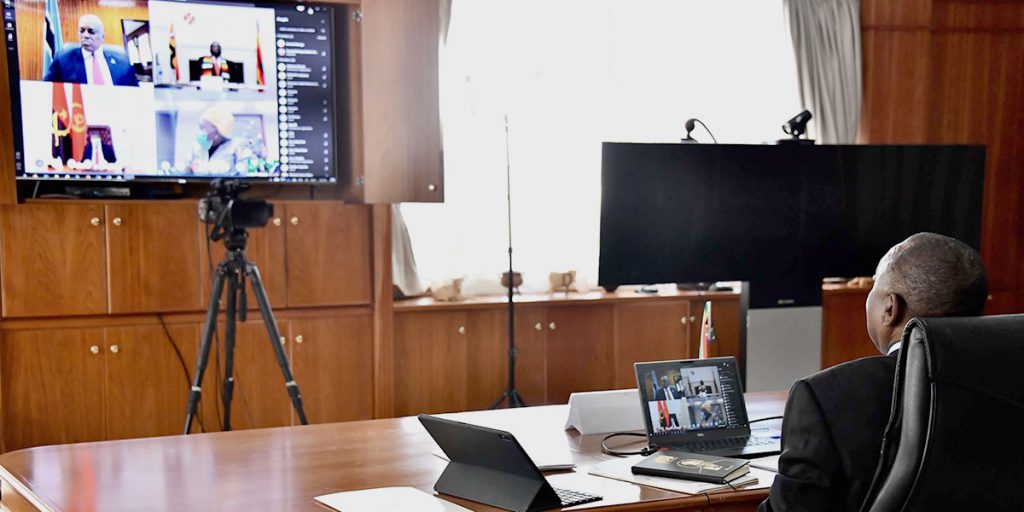
Africa’s diplomatic system has adjusted swiftly to the new coronavirus (COVID-19) realities of conducting business. This is visible in the flurry of virtual consultations among decision-makers to chart common ways forward. The high number of African Union (AU)-led consultations over the past few months reflect a deep-seated conviction that collective action is the best way to address Africa’s challenges effectively.
Organised crime: a growing sector during the COVID-19 pandemic
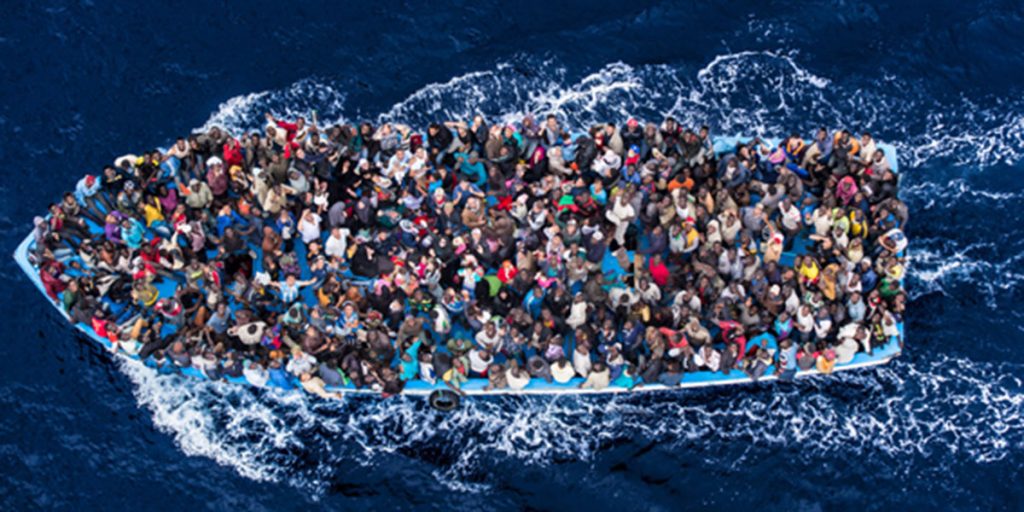
Some of the measures put in place by governments to contain COVID-19 appear to be linked to an increase in organised crime that profits from, among others, smuggling people and goods such as alcohol and cigarettes (that have been banned as part of the COVID-19 measures).
Impact of COVID-19 on peace support operations in Africa
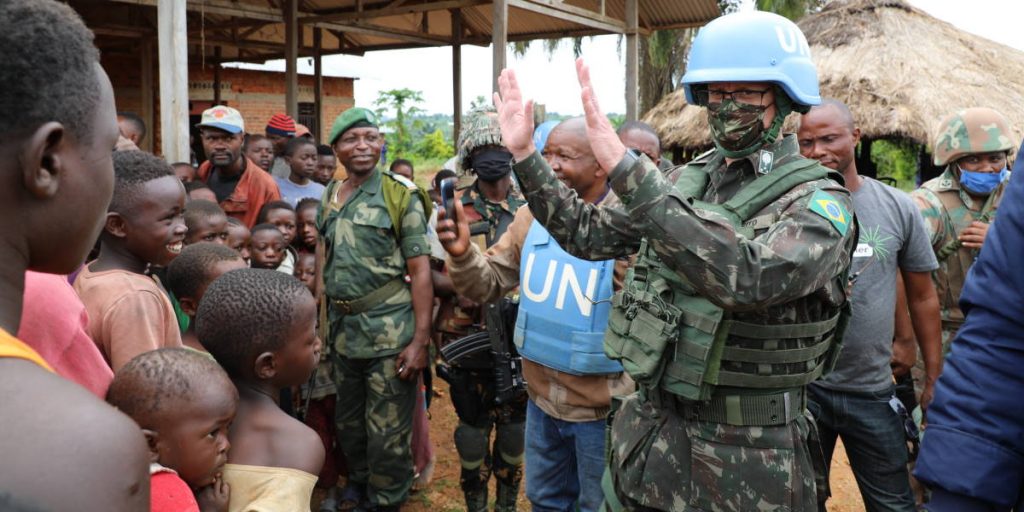
The coronavirus (COVID-19) pandemic has had an impact on peace support operations (PSOs) in many ways. Not only has the increase and spread of the pandemic affected PSO personnel inside their respective field missions in terms of stress, morale, command and control of forces, but it has also disrupted their routine activities, including confidence-building activities and the rotation of troops after completing their tours of duty.
COVID-19 and its effects on peacebuilding in Liberia
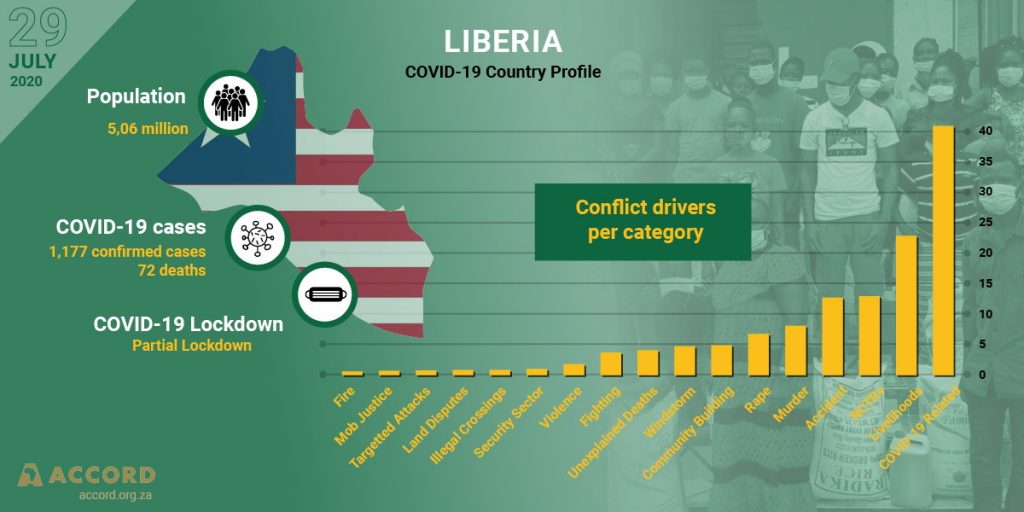
COVID-19 has eroded some of the peacebuilding gains made in Liberia over the last decade and a half. The threat posed by COVID-19 to sustaining peace in Liberia has increased the need to strengthen regional and sub-regional collaboration and international cooperation to contain and mitigate the impact of COVID-19.
COVID-19 in Africa: the emerging pattern is resilience rather than conflict
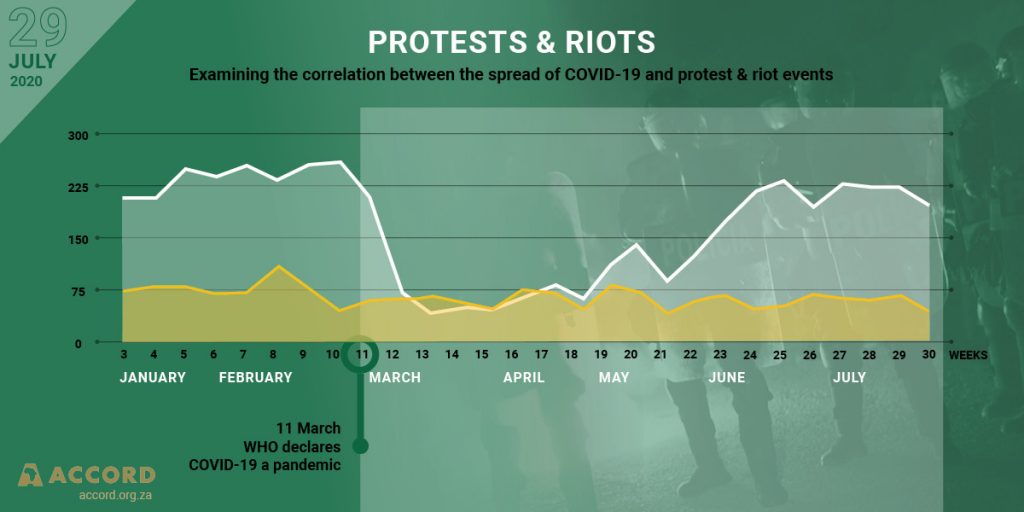
It is now some 165 days since the first coronavirus (COVID-19) case was diagnosed in Africa, on 14 February 2020 in Egypt. Many commentators expected that Africa, with its high levels of underdevelopment and weak public health systems, would be particularly badly affected by COVID-19, and that this could even lead to a catastrophic collapse of social and political stability. So far, however, the emerging pattern is one of resilience rather than collapse, chaos and conflict.
COVID-19 and its impact on violent extremism in Ghana and West Africa
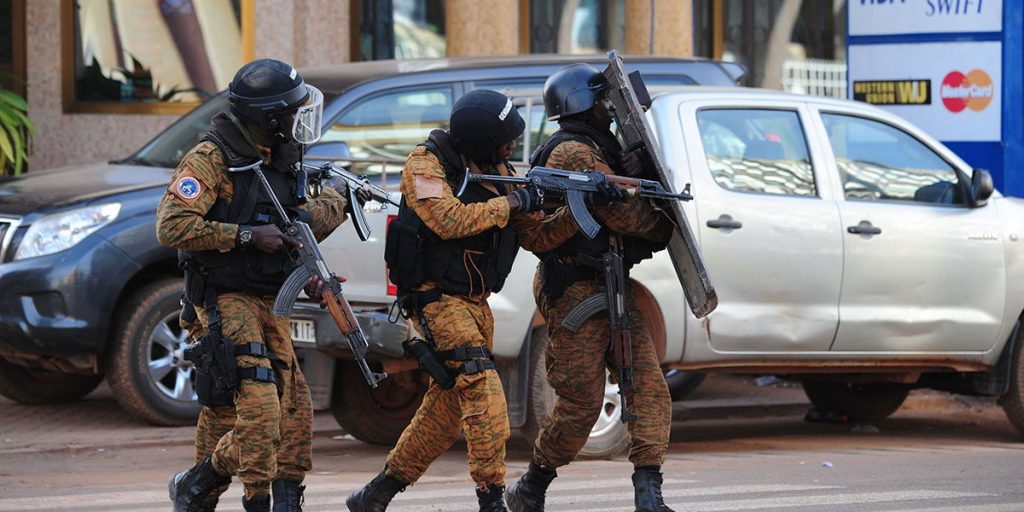
West Africa and the Sahel, which have been in the throes of insurgencies since the early 1990s and have had to deal with extremist violence from the mid-2000s, are faced with a new challenge: how do already underfunded, resource-constrained and, in most cases, poorly trained security forces respond to new threats?
African mediation in the shadow of COVID-19
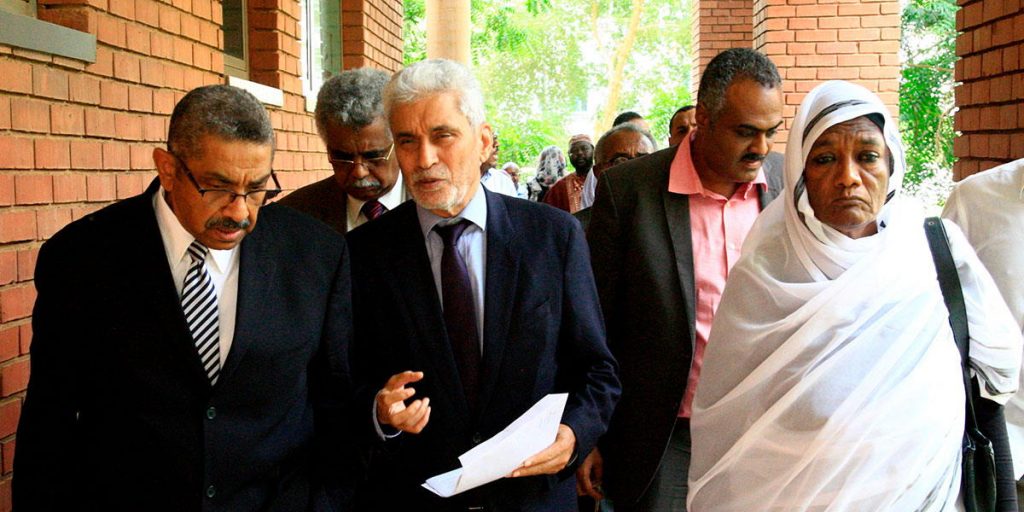
The lockdown-type measures adopted by governments to prevent the spread of COVID-19 has deprived mediators and facilitators of the opportunity to use these important tools to resolve African conflicts and consolidate the implementation of peace agreements. However, we hope for a successful fight against COVID-19 in Africa that will reopen opportunities for mediation in Africa.
